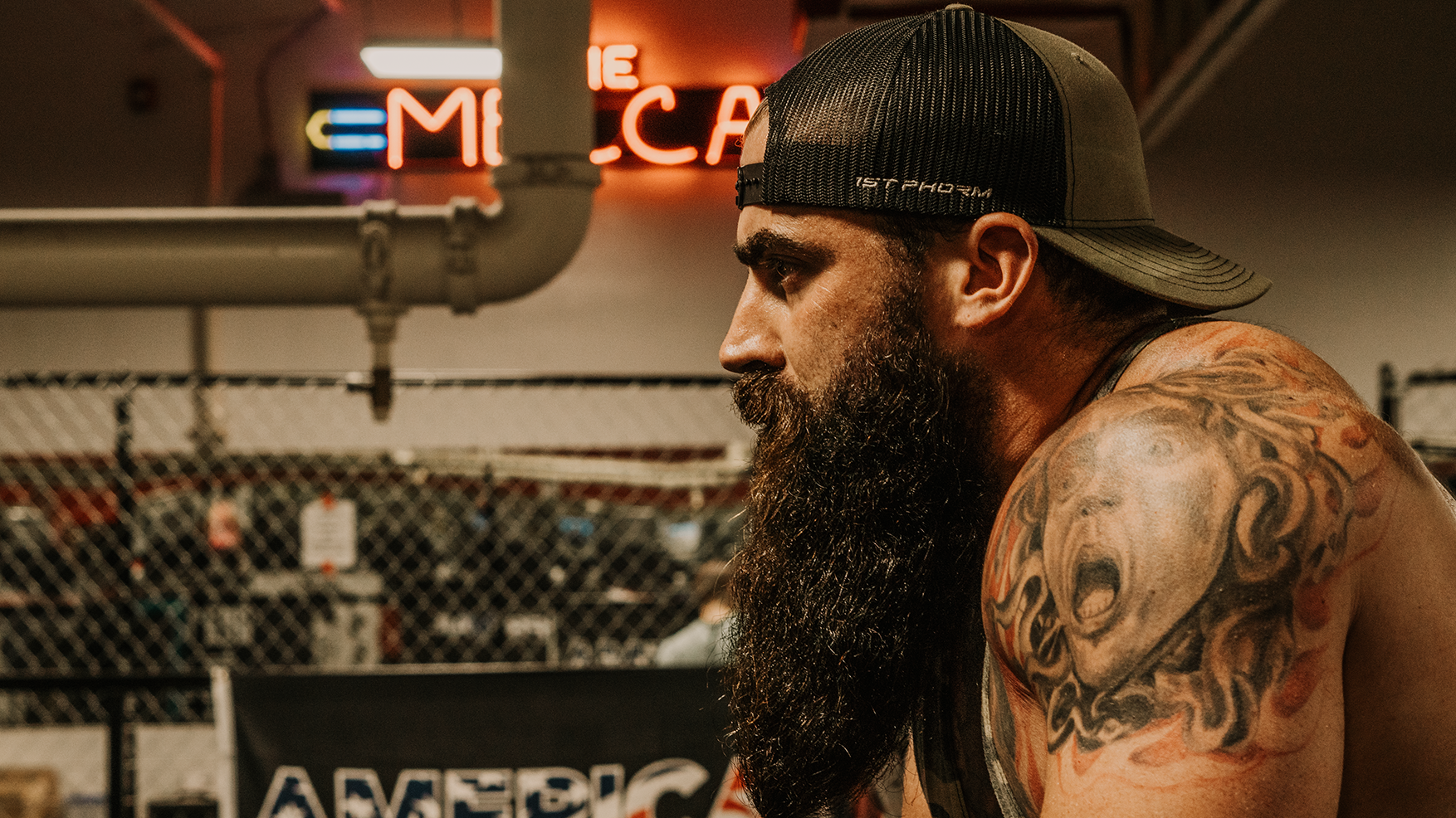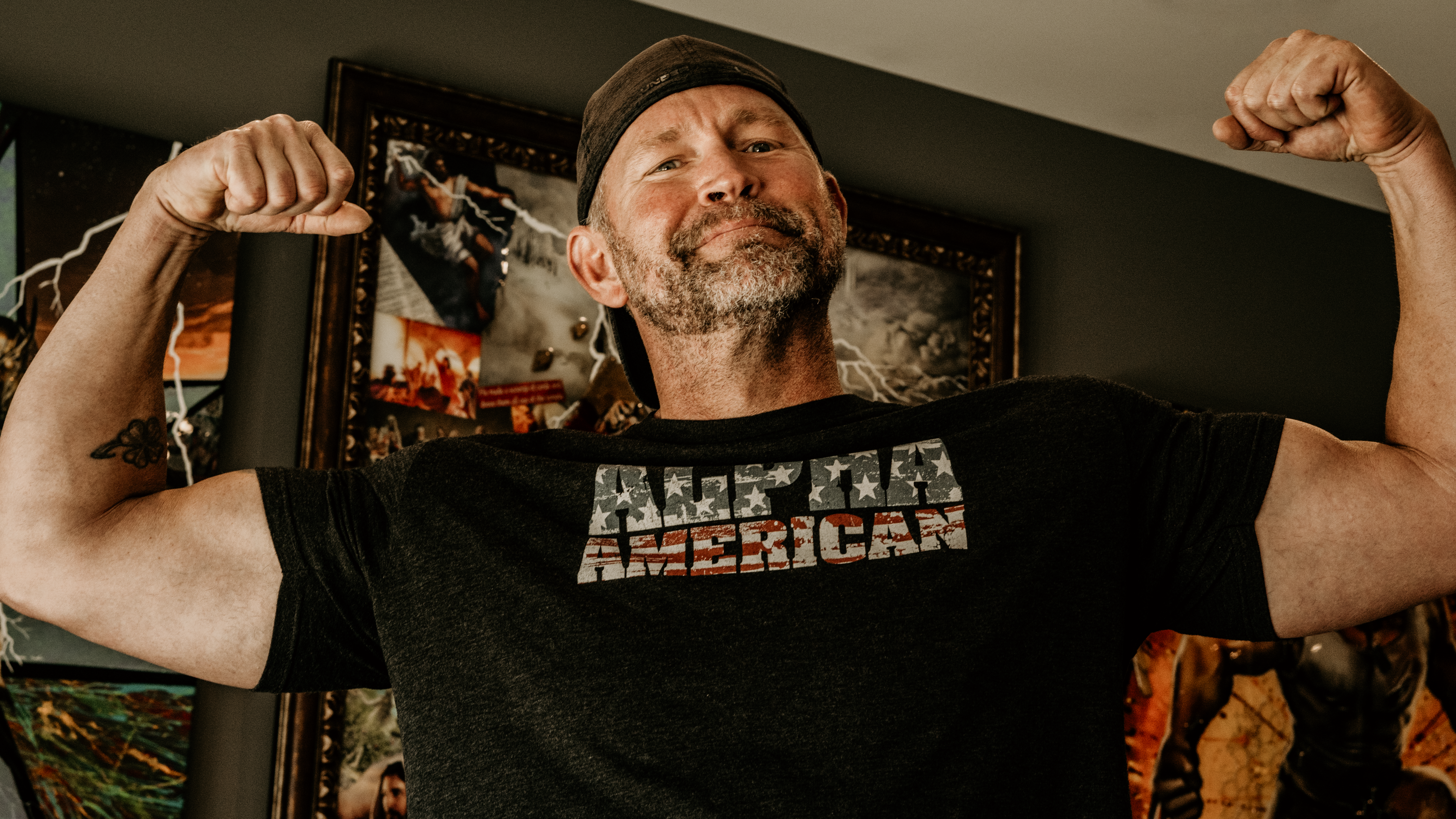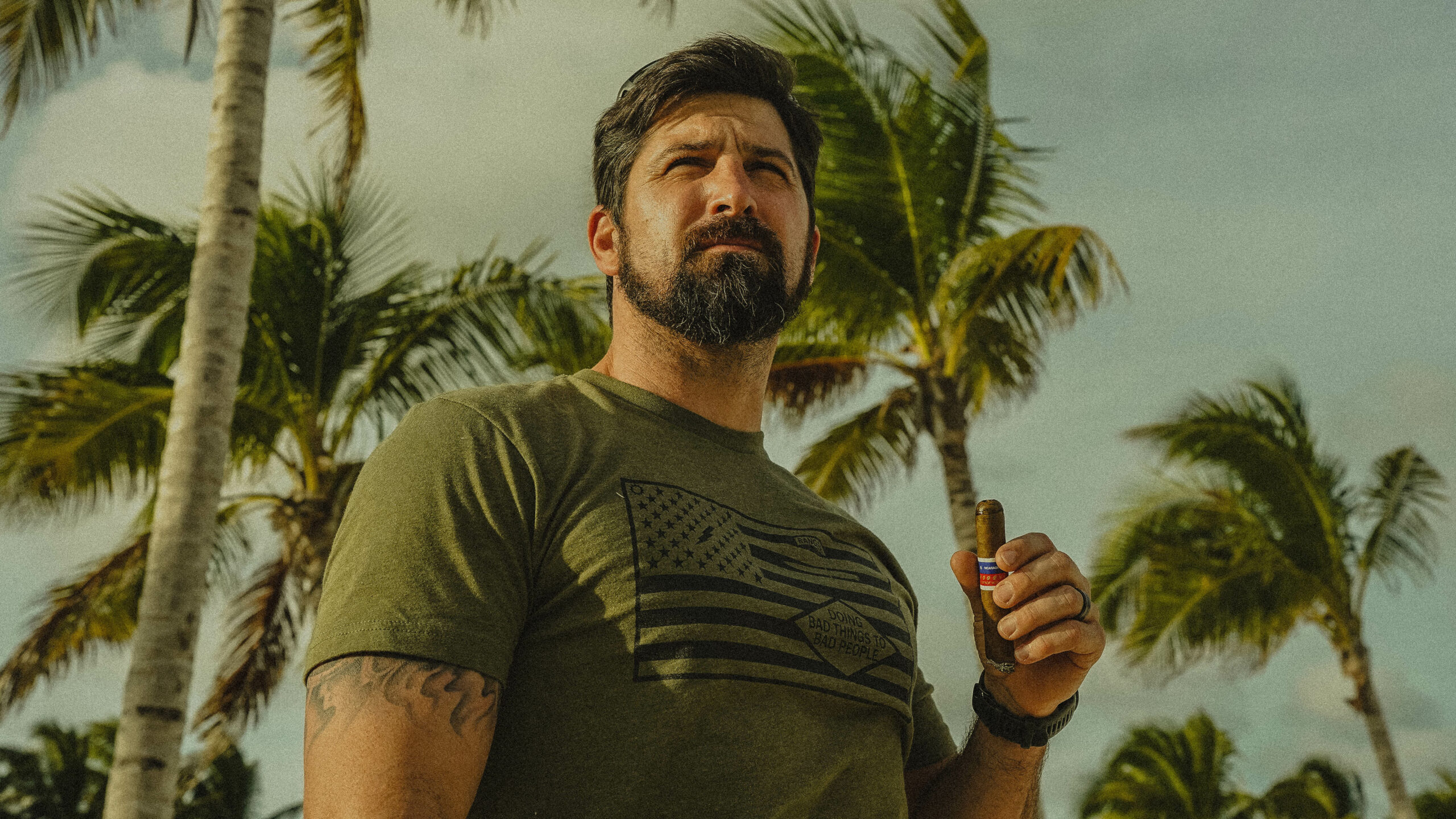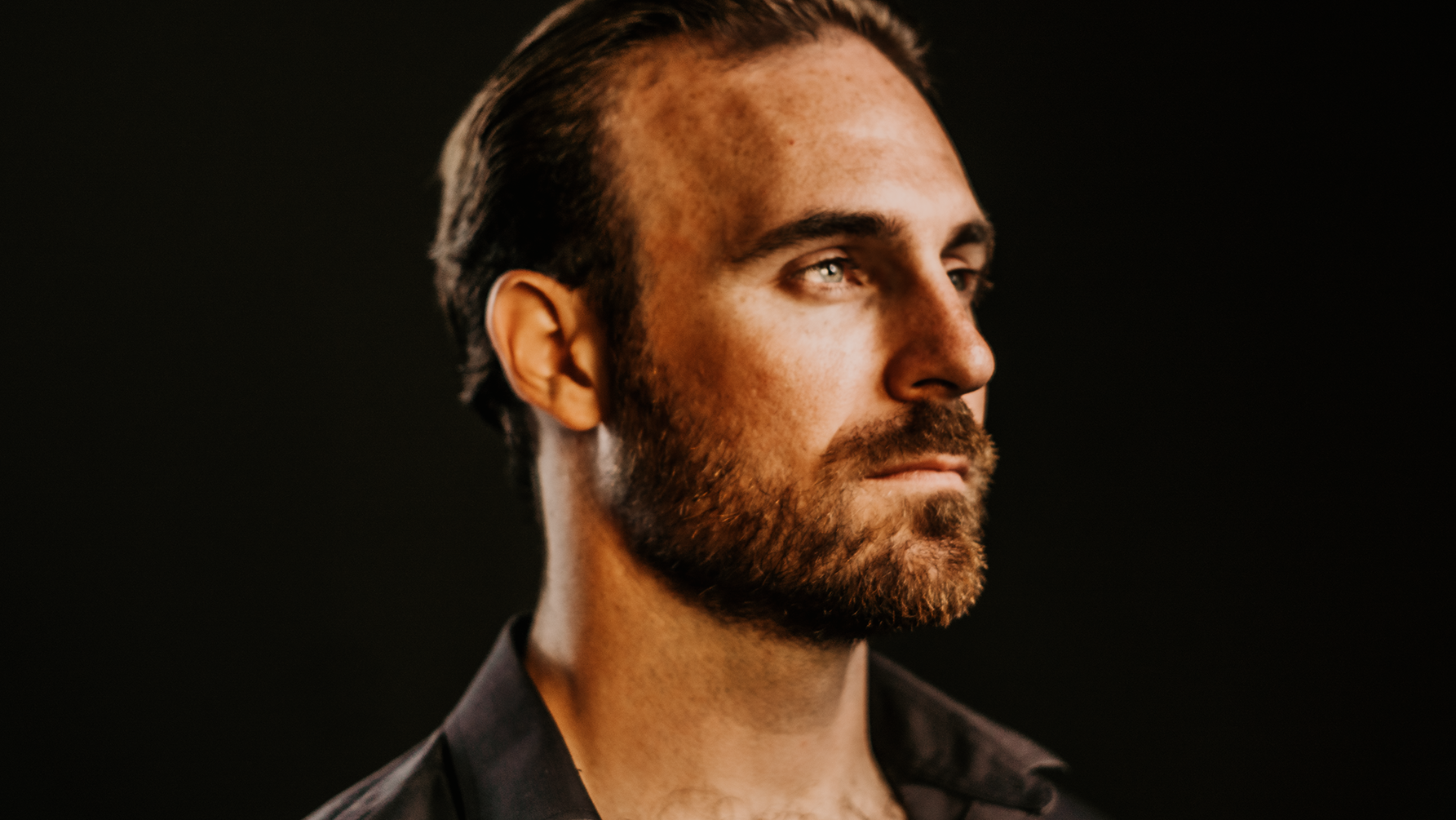Ian Smith photographed by Jack Donovan. 2021.
This interview was published online as part of the CHEST magazine project in 2021.
Early in the 2020 lockdown, as governors were ordering businesses to close and free American citizens to “stay at home,” Ian Smith and his business partner Frank Trumbetti reopened their Atilis Gym in Bellmawr, New Jersey. Over the following weeks and months, they were arrested, cited, and fined $15,000 a day. When officials boarded up their front doors, they kicked the boards down and reopened for business.
Over the next year, the fines and charges continued to rack up. Still, Smith and Trumbetti remained steadfast, and their courageous defiance inspired frustrated business owners and indignant Americans all across the country. They saw Smith on the news and online defying state orders and engaging in legal battles with the Governor of New Jersey, and many said to themselves and their friends, “Finally. Someone is doing something.”
Smith and Trumbetti were able to continue their fight and keep their gym doors open because hundreds of thousands of people donated online and bought the t-shirts that read “BELLMAWR FOR EVERYBODY.”
I don’t believe we should use the word “hero” lightly, but I also think that something is lacking in us as men if we are afraid to use it all. We should never allow ourselves to become so insecure or self-centered that we can’t look at another man’s actions and applaud them and say, “this is the way.”
What is a hero, if not a man who stands up against evil, corruption, and tyranny when no one else will?
A hero does what other men want to do but are afraid to do.
And by doing that, he becomes an exemplar.
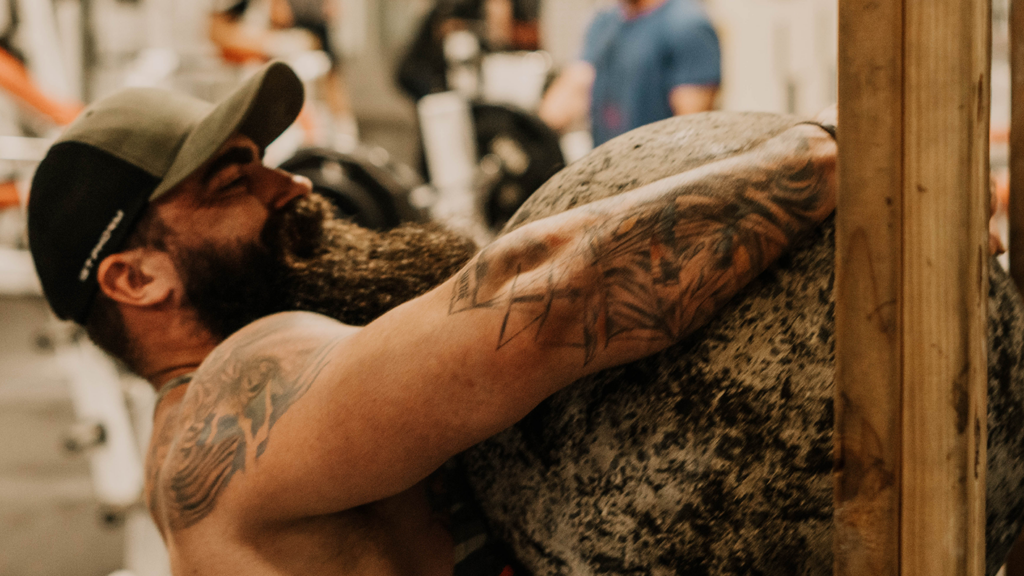
Heroes aren’t perfect, and we should never expect them to be. They’re human, though the ancients often attributed them with divine parentage. People often forget that even Herakles performed his famous labors to atone for a streak of madness that caused him to murder his whole family.
Heroes are the flawed men who happen to show up when needed most to do battle with chthonic darkness and the serpentine servants of the void. They show up to slay the dragon. Or at least — they show up and give it a shot.
Smith and Trumbetti went to war with the leviathan of the state, and the state went to war with them. At one point, the New Jersey governor seized over a hundred thousand dollars in donations from one of their bank accounts. Smith has become a targeted man, navigating multiple social media bans and shadowbans.
He’s also found himself a man sought after as a public speaker. He spoke at the Conservative Political Action Conference (CPAC) this year — though that trip also got him officially banned from American Airlines for refusing to wear a mask on the plane. Smith documents his experiences with the TSA when he flies now, as he is now flagged for approximately three hours of harassment every time he attempts to board a plane.
I did a podcast with Ian a few months ago, and I posted it to Rumble — because YouTube would have surely shut down my account if I’d posted it there. However, after realizing that Bellmawr was so close to Philadelphia, I decided to visit the famous gym and interview him for CHEST.
My folks live in Pennsylvania, so I planned a visit home and made the trip out to Bellmawr a father-son outing. I drag my dad along on these East Coast adventures every so often, and he gets a kick out of it.
Early in July, we drove across the Delaware River on the pale green Walt Whitman Bridge and headed through suburban Bellmawr to the Atilis Gym. My dad and I walked in the front door and were asked to get a temperature scan and fill out short statements about our current health status. Then Ian appeared at the counter with his Mesopotamian beard and showed me around the gym.
The front area was packed with t-shirts, and as I walked out onto the busy gym floor, I noticed that almost everyone there was wearing some version of the BELLMAWR FOR EVERYBODY shirt. (I had mine on, too.) The community had really come together to support the gym. I also noticed that it was a serious gym — to an extent I hadn’t expected — outfitted with tons of heavy-duty bodybuilding and powerlifting equipment. There were some massive guys walking around. There’s also a martial arts area upstairs, which Ian plans to expand.
After touring the gym, Ian introduced me briefly to Trumbetti, and then we headed into the office to talk. Above us, a framed print featured the Teddy Roosevelt quote from his speech about “The Man in the Arena.”
“It is not the critic who counts; not the man who points out how the strong man stumbles, or where the doer of deeds could have done them better. The credit belongs to the man who is actually in the arena, whose face is marred by dust and sweat and blood; who strives valiantly; who errs, who comes short again and again, because there is no effort without error and shortcoming; but who does actually strive to do the deeds; who knows great enthusiasms, the great devotions; who spends himself in a worthy cause; who at the best knows in the end the triumph of high achievement, and who at the worst, if he fails, at least fails while daring greatly, so that his place shall never be with those cold and timid souls who neither know victory nor defeat.”
My dad had asked me what Ian did before he owned a gym or became a public figure — and I didn’t know the answer myself — so we started there.
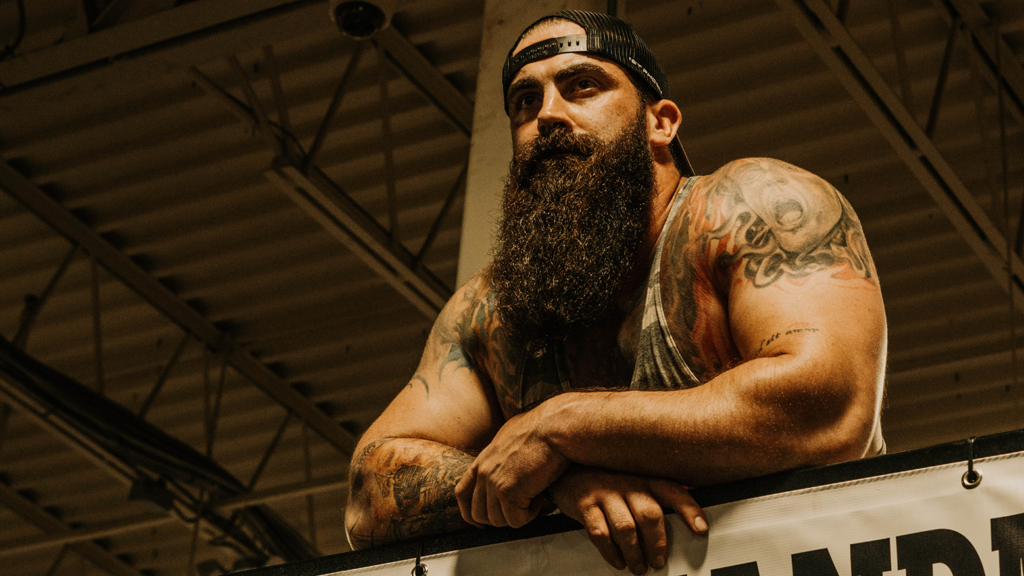
Based on the way Ian looks now, many people would assume that he was a jock in high school who has always been some kind of meathead. But, much like Teddy Roosevelt, he describes himself as having been a “feeble kid” with asthma who didn’t want to play sports, didn’t want to be challenged, and just wanted to blend in. He went to college, where he studied some math and some physics, and then eventually philosophy.
One morning, after waking up from a late night of college drinking and then “driving like an asshole” (his words), he ran a stop sign. He ended up killing a man with his vehicle. Ian himself ended up halfway through his windshield, and the officers on the scene told him that as they approached the wreckage, they weren’t expecting to see a survivor. There was still alcohol in his system from the night before, so he was charged with a DUI and spent several years in prison.
Ian said that it was surviving this accident that sparked his interest in strength and health.
“I hadn’t appreciated anything about what my body was capable of. That’s where I got into strength training, because once I started it was a way for me to channel all of my bullshit into something that I could create and that I had control over and that nobody could take away from me. Especially as I got into prison — you know, they take everything. They take your name, they take your self-expression, they take your ability to communicate. When to eat, when to shit, when to sleep, who to sleep next to — whatever. And that was something that kept me sane through all of it because, no matter what, I could work on this tangible project that nobody could take from me. I remember being in solitary confinement doing 10,000 pushups a day because it was just me in a cell. […] I’ve dabbled elsewhere, but nothing ever caught my attention like strength training did. I’m fascinated by what you can do when you put hard work with a little bit of planning and repetition — it’s incredible what people could do.”
Fast forward through hard time and an ill-fated marriage in Arizona. Ian found himself deep in debt from a divorce, and he moved home to New Jersey and started training people “with the kind of weights you buy at TJ Maxx” out of the back of his car. Eventually, he built up a clientele and started renting space from his future business partner Frank, who had owned a supplement shop for twenty-five years. Their businesses kept growing, and Smith put everything he made back into his own operation until the two of them eventually had an opportunity to buy Atilis.
Frank and Ian opened Atilis nine months before the flu shutdown.
Ian said that training people is his passion, and while he still manages to do some training, he’s looking forward to spending more time doing it once they get to start operating like a real gym again, instead of “Fort Bellmawr, The Resistance.”
Ian and Frank always saw eye-to-eye on what they wanted Atilis to become.
“We wanted to create a place where everybody — no matter what you were doing — everybody is united by the theme that you’re in here busting your ass. And that you’re supporting one another and learning from one another. We wanted to have a gym where, when you walk in, not a lot of people have headphones in. People are talking to each other and looking at each other and learning. It’s not just where you go and do your daily chore of working out, but a place where you really come to enjoy the atmosphere. A dumbbell weighs the same wherever you go — but that’s why you want to choose this gym.”
I asked him how it was for him, moving from being a “guy training out of his car” to a “guy who is on CNN.”
He said that one of the hardest parts has been dealing with the reality that while he’s “never claimed to be a saint,” everyone automatically assumes that you do when you become a public figure. People also start to look to you for advice and direction, which comes with a lot of responsibility. “Now I’ve developed this platform that is like a tool — and you can do whatever you want with it. You can be a total asshole, or you can be a saint, or you can be somewhere in the middle, which,” he laughed, “is kinda where I like to be.”
Ian credits speaker and author Andy Frisella with helping guide him through some of the challenges of being in the public eye for the first time. He also said he looks to Sean Whalen because he “gets a lot of flack,” and Ian looks to both of them to figure out “how to not stumble and fall on your face.” But it is important to Ian that people know how much he has learned from his business partner, Frank Trumbetti. The two of them have faced all of the same risks and challenges together, and Ian says that Frank taught him a lot about following through and, as he put it, “just shut up and work.” According to Smith, Trumbetti has been unshakable, working tirelessly, day-in and day-out to keep the gym running — setting the standard for both of them. Ian credits Frank with teaching him that perseverance and hard work are what make success possible.
Smith said that staying in the public eye has been what saved the gym — because he and Trumbetti could never have fought what he calls a “war of attrition” with the State of New Jersey without all of the public support.
The gym, by the way, has been free to the public for months. It survives entirely on the support of people in the area and across the United States.
“If you do the right thing, people will support you. Everybody’s so afraid to do the right thing because it’s hard and because it’s uncomfortable.”
“Without the amount of support we’ve gotten over the past year or so, whether it be support for me and the gym or the gym, we would have been up shit’s creek. We still are, but we’ve got paddles.”
At the time we did this interview, everything had pretty much opened back up in most parts of the country. I asked Smith what he was going to do and how he was planning to use his platform now that people were back in gyms and attention was moving to other issues.
He said that he had been thinking a lot about that and had been trying to determine what was most important to him.
“Through this, I’ve seen the weakness of men. It’s so hard to ignore, and it’s snowballing. I feel like I’m watching a train wreck. At the end of the day, I know who I am. I’m a man who has certain values and principles, and I think they are good ones. So I want to help other men find their own. Not necessarily mine. But to be able to explore what it really means to be a man. Because in today’s world, I think that is something that most men — or far too many — don’t ever get to explore.”
“I don’t think it’s a question that many men ask themselves these days. Like, ‘Who am I? What’s important to me? What am I willing to fight for? What am I willing to let go?”
He says he gets thousands of messages every day, and many of them are women thanking him for being a strong man and telling him how they want their sons to grow up like him. Then he laughed, “No, you don’t — just ask my mom.”
“I’m still figuring out how to be a man myself, but there’s just not enough of that these days.”
It’s important to Ian that men develop the ability to, “persevere and be ‘tough’ — and that doesn’t mean fighting, that means flourishing in a world that will crush you if you don’t do something about it. Living to the greatest extent of what you can be and what you want to be — what you truly want to be.”
We talked for awhile about the cycle of comfort that creates softness in men until things fall apart and then forces men to create order from chaos again — though we both agreed that we really don’t want to watch it all collapse or go “Madmax.”
Ian dreams of a society in which men understand the dangers of the cycle and understand that it is our duty to protect that order and teach the next generation how important it is to protect that order.
“So the good times keep rolling” and we “don’t get so distracted by the pleasures of the good times to remember that we’re always just a couple steps away from losing this. If you ask me what’s most important to me, that’s it. I don’t want to see it all burn. I want to see us all grow. All of us.”
When we conducted this interview, it seemed as though Smith might actually get to go back to training people and operating a normal gym and begin moving into a role as a speaker and mentor for men. However, over the past few weeks, the corrupt authoritarians seem to have convinced the most gullible, fearful, and compliant parts of the population that the first in what seems likely be an endless parade of flu “variants” is a major threat.
Some Australians are already operating under martial law. In America, Red states seem less likely to go back to mask mandates and lockdowns, and some — like Texas and Florida — have enacted legislation banning them. But New Jersey is a Democratic state, and there’s a strong chance that Smith and Trumbetti may be forced to step back into the arena and “Fort Bellmawr” at Atilis may continue to be a symbol of freedom and resistance.
